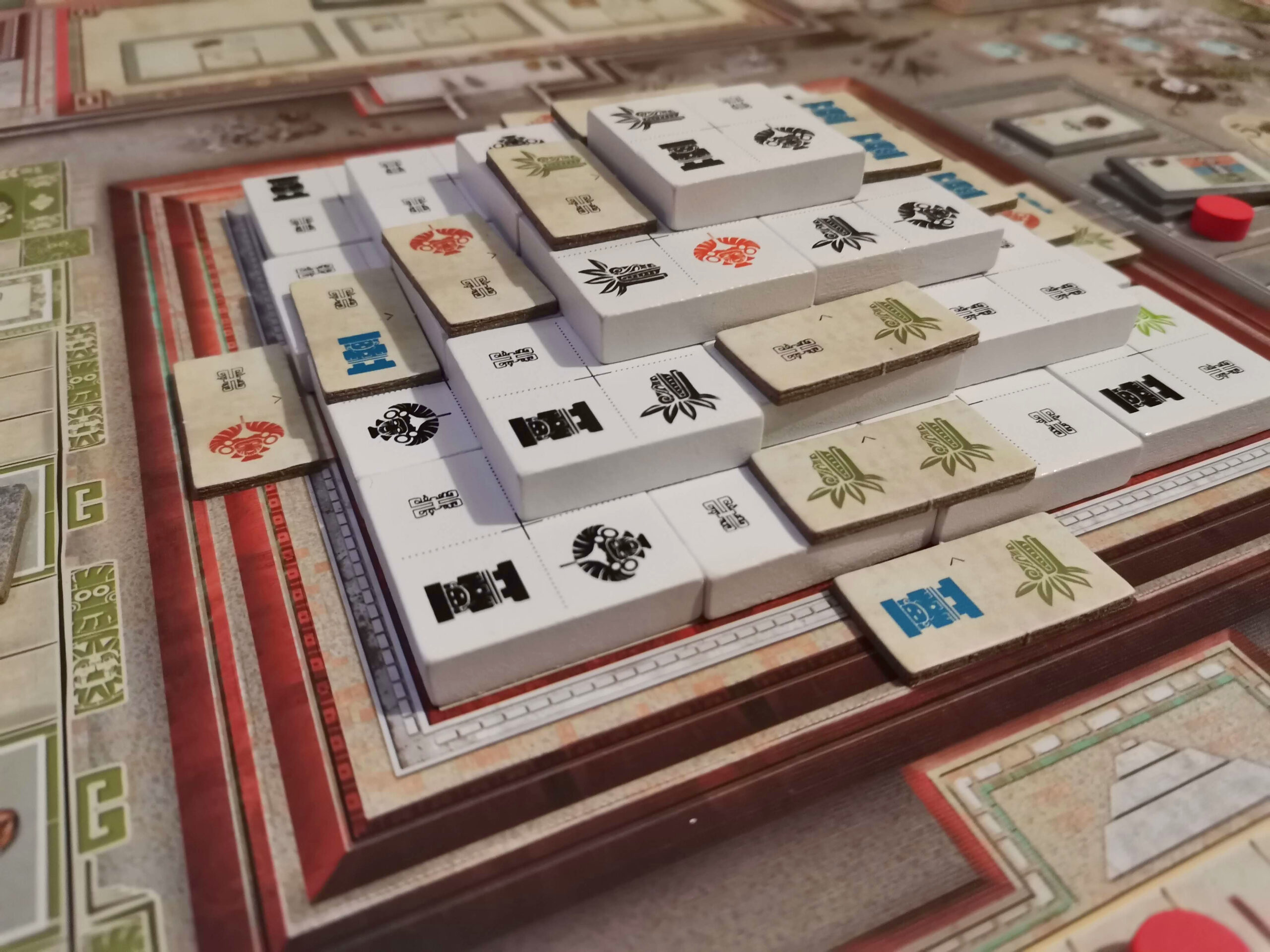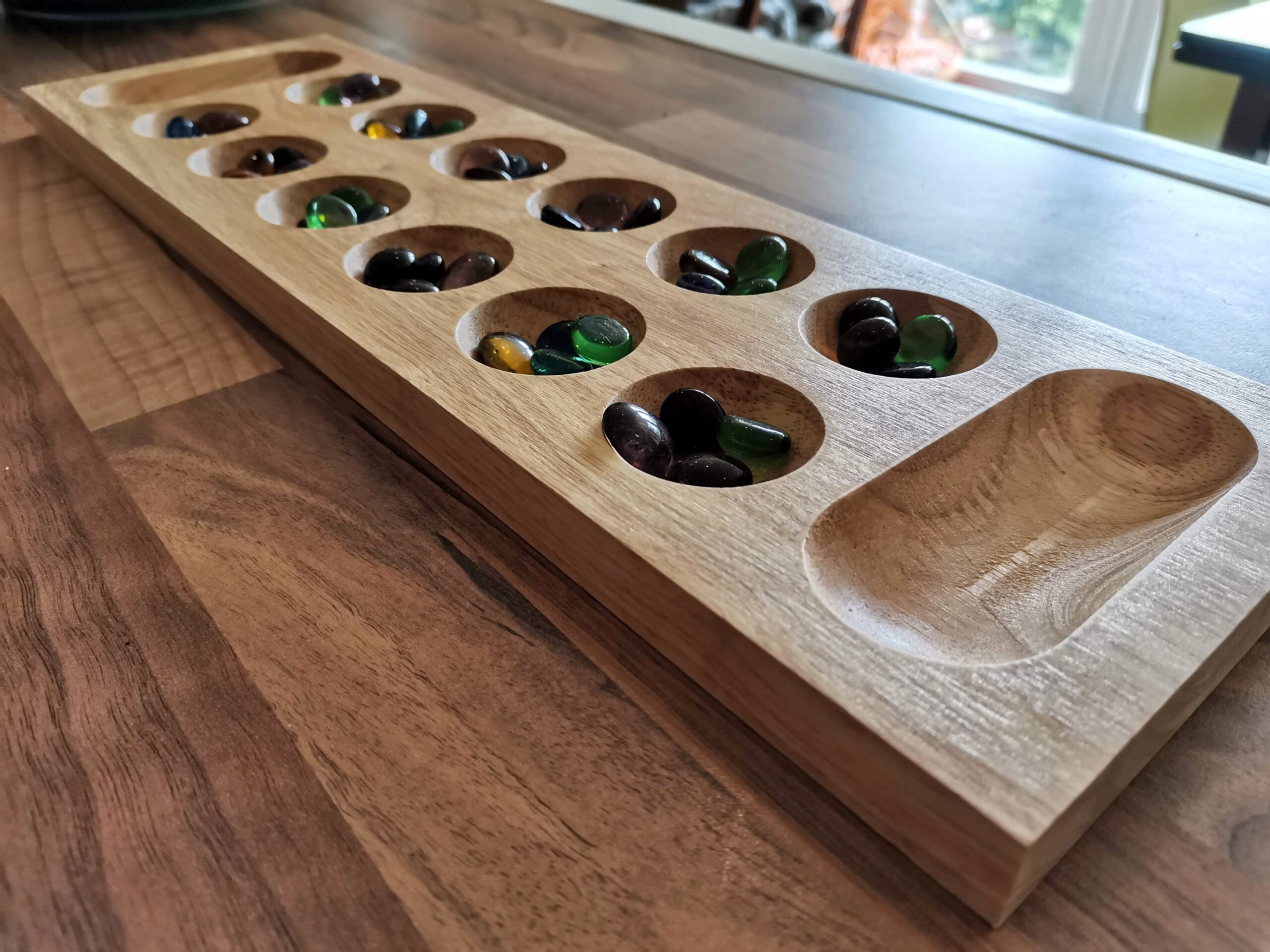Why Not Just Play a Video Game?

Solo board games, and me
When the Covid-19 pandemic hit, life as we know it suffered seismic disruption. Schools, business, retail – everything changed. Anyone who is part of a hobby or club really felt the impact too, as meeting-up with other humans was suddenly a big no-no. What then, for board gamers? People whose hobby revolves around games and interactions with other people, pushing pieces of wood and plastic back-and-forth across a table. Some temporarily hung up their dice towers, not content to make-do. Others flocked to online games, via offerings such as Tabletop Simulator, Board Game Arena, and Tabletopia. But for a lot of people – yours truly included – it steered us in another direction: solo board gaming.
Those three words on their own – “solo board gaming” – seem pretty paradoxical to some. The concept of taking a hobby that relies on people around a table and doing it on your own. How do you even do it? When I’ve told friends that I play these games on my own, their faces speak volumes. They look like I’ve just tried to explain why I think it’s a good idea to add smoked fish to a jam sandwich.
The most common response I heard was “Why not just play a video game?”, and in fairness, it’s a good question. There are thousands of video games out there designed to be played by yourself, so, why bother playing a board game alone?
The security blanket
I’ve had an on-off relationship with depression during my forty-something years. I’m lucky that I can spot the warning signs now, but for a lot of people, the mental health issues that lockdown brought with it were something new to contend with. Board games are really important to a lot of people, and losing that piece of recreation, the social interactions, and the simple joy that a game can give them, was a huge blow. There’s a lot to be said for the comfort that familiarity brings to people. For example, If I’m poorly, I’ll always watch the same three or four films that make me feel comforted. Familiarity makes us feel safe.
The physical interaction with a board game is such a tangible thing. Choosing a box on the shelf, sliding the lid off, and pulling out the baggies and boards. These simple actions can trigger almost Pavlovian responses in our brains. It puts you in that happy place, your worries and anxieties get shunted to the background to make room for wooden meeples on a cardboard landscape. Tackling depression (in my own experience) is about breaking cycles of thought. Playing a familiar game for a couple of hours can offer precious respite from your own brain, and sometimes that’s all you need.
Keeping focus
I should mention that I’m not against playing video games. Far from it, I’ve played games almost daily for the last forty years. But when it comes to playing video games, my attention span is terrible. I’ll play quick-fix games like Rocket League, where I can play for ten minutes and walk away, or longer adventure games that end up in the tens of hours. The problem is there’s always something else on the periphery of my thoughts when I’m at the computer. Another screen showing me something to grab my attention, another of my backlog of hundreds of unplayed games to tempt me, calling me onto the rocks of distraction like digital Sirens.
If I take the time to clear the table, choose a game from my shelves, and set it up, then I’ve made a commitment. I’m invested. For the next couple of hours, the only thing that matters is the game developing in front of me. It has a start, and it has an end, and for some reason there are so few video games that fill that same space for me. Games that I can start and then play to completion in a two-hour timeframe, games where I dictate the speed and flow of events. In those couple of hours, all I think about is my next move, my strategy, how I’m going to get those next few pieces of wood I need to build that house. As I mentioned above, that interruption to your own internal monologue is priceless sometimes.
Let’s get physical
I’m going to use that word again: tangible. There’s something special about the physical components when it comes to playing board games, and it’s not something I can easily explain. There’s a very personal connection that comes from laying the board, the cards, and the components out. It’s a similar story when it comes to actually playing the game. If I want to shuffle a deck of cards in Tabletop Simulator, I hover my pointer over it and press R on my keyboard. Guaranteed random shuffles in a fraction of a second. But picking the cards up and performing those shuffles – it’s engaging and tactile. It might take hundreds of times longer to do, but that doesn’t matter.
I defy anyone to not feel satisfaction when you place cubes into socketed double-layer player boards, or to play with your resource cubes, stack your meeples, or make neat little piles of currency. All of these superfluous actions add nothing to the game, but the experience of playing that game is fundamentally altered. Even drawing the box down off the shelf, to me, adds an amount of excitement and anticipation before I’ve got anywhere near the game. That’s a feeling I could never replicate by sitting at my computer and clicking Start on a game in Steam.
Is it worth it?
All of this gushing over what a wonderful thing it is, to manhandle a board game, is all well and good, but let’s talk about the most important thing. What is it like to play a board game by yourself? It’s not an easy question to answer, because it varies from game to game. The majority of games with a solo option use one of two methods to play. Some challenge you to beat your own best scores, with the mechanisms of the game remaining unchanged. My favourite way to play, however, is against an automa, or AI opponent.
To the uninitiated, the idea of an AI opponent – the equivalent of a CPU player in a video game – seems preposterous in a board game. How can a deck of cards make intelligent decisions? Surely it’s just random chance!? The truth, however, is often an experience which is streamlined and built on probability and simple decision hierarchies. What that means to you and I, is that you can easily mimic the experience of competing against another player, while you’re on you own.
The biggest problem with playing solo, and it’s one that’s insurmountable to some people, is still missing the human interaction. You aren’t laughing and joking, you’re not suspiciously eyeing-up your neighbour, and you’re not freaking-out because someone’s eating a bag of cheese Doritos at the table. But you’re still playing a game you love, or a new game that you’re learning, and you can still engage with like-minded people online and feel like you’re a part of a connected community.
Saving throws
It’s no exaggeration to say that board games have been instrumental in keeping my mental health in check over the last year or so. Although I’m not conscious of it at the time, when I finish playing a game, even a heavy euro game, I suddenly become aware of having not worried for the duration. That break from myself is like a miniature holiday. But playing games solo isn’t just about fighting depression, it’s about having fun, and playing games solo is fun. It’s not for everyone, I understand that, but it’s a far better option than you might imagine.
Video games have their place, and I continue to play them far more than I probably ought to. It’s just that now there’s another option for my recreation. The quiet peace of an evening sitting at a table with the noise of the day gone, and without a screen straining my eyes, is wonderful. Passive entertainment doesn’t fill the same gap for me, so reading a book or watching TV does very little to hold my attention.
Maybe playing solo board games will be a hit for you, and maybe it won’t. Realising it’s a viable option though, and one which more and more people are choosing, is the first step. If you’re looking for ideas of games that you can play by yourself, I’ve tagged up every solo-compatible game I’ve reviewed, and you can browse through them by clicking here.




















Brilliant piece on a very relevant topic. I connect with your views on many levels!
That’s very kind of you, it’s always re-affirming to know there’s others out there in the same boat.